-
 Bitcoin
Bitcoin $84,279.0862
1.17% -
 Ethereum
Ethereum $1,858.6128
0.52% -
 Tether USDt
Tether USDt $1.0000
0.02% -
 XRP
XRP $2.0833
-1.59% -
 BNB
BNB $597.4578
-2.06% -
 Solana
Solana $124.0300
-2.05% -
 USDC
USDC $1.0000
0.00% -
 Dogecoin
Dogecoin $0.1692
-0.66% -
 Cardano
Cardano $0.6673
-1.05% -
 TRON
TRON $0.2372
0.36% -
 Toncoin
Toncoin $4.0011
-3.95% -
 Chainlink
Chainlink $13.5232
-1.33% -
 UNUS SED LEO
UNUS SED LEO $9.3916
2.13% -
 Stellar
Stellar $0.2661
-0.26% -
 Avalanche
Avalanche $18.9440
-1.33% -
 Sui
Sui $2.3295
-1.51% -
 Shiba Inu
Shiba Inu $0.0...01219
-4.51% -
 Hedera
Hedera $0.1643
-0.77% -
 Polkadot
Polkadot $4.0642
-1.61% -
 Litecoin
Litecoin $81.8330
-3.27% -
 MANTRA
MANTRA $6.1386
-3.56% -
 Bitcoin Cash
Bitcoin Cash $303.3933
-1.76% -
 Bitget Token
Bitget Token $4.5769
-0.23% -
 Dai
Dai $1.0000
0.00% -
 Ethena USDe
Ethena USDe $0.9998
0.01% -
 Pi
Pi $0.6903
-4.97% -
 Hyperliquid
Hyperliquid $13.1418
-4.34% -
 Monero
Monero $217.7149
-0.27% -
 Uniswap
Uniswap $6.0563
-0.37% -
 Aptos
Aptos $5.2264
-1.90%
How to reduce fees when trading SOL?
To minimize Solana transaction fees, time trades during off-peak hours, break large transactions into smaller ones, and use efficient wallets and DEX aggregators.
Mar 28, 2025 at 02:28 am
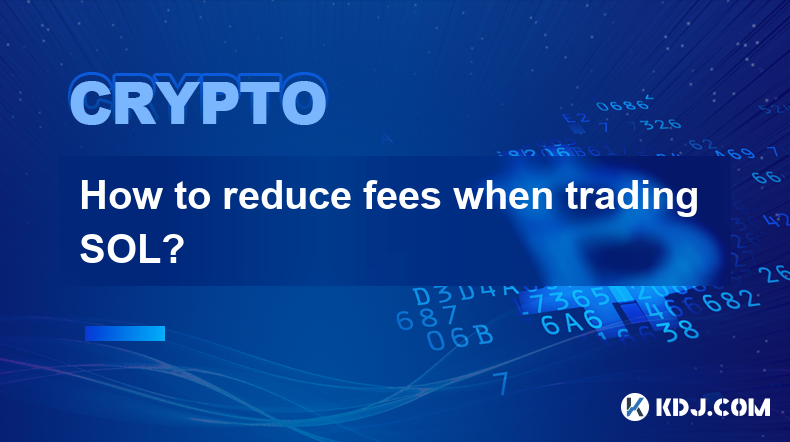
Understanding Solana Transaction Fees
Solana, like other blockchains, charges transaction fees. These fees, paid in SOL, compensate validators for processing and verifying transactions. The fee amount isn't fixed; it fluctuates based on network congestion. High network activity means higher fees, while low activity results in lower fees. Understanding this dynamic is crucial for minimizing your costs. The fees are directly proportional to the complexity of the transaction. Larger, more complex transactions will naturally incur higher fees.
Timing Your Transactions Strategically
One of the most effective ways to reduce SOL transaction fees is to time your trades carefully. Avoid peak trading hours when the network is most congested and fees are highest. Experiment with trading during off-peak hours, often late at night or early in the morning (depending on your time zone and the global distribution of Solana users). This simple strategy can significantly lower your costs. Monitoring network activity through various Solana block explorers can help predict optimal trading times.
Optimizing Transaction Size
The size of your transaction directly impacts the fee. Larger transactions, such as those involving many NFTs or large amounts of SOL, will naturally be more expensive. To minimize fees, try to break down large transactions into smaller, more manageable ones. This is particularly relevant when interacting with decentralized applications (dApps) that allow batch transactions. Always review the estimated fee before confirming a transaction.
Choosing the Right Wallet
Different Solana wallets offer varying levels of fee optimization. Some wallets are more efficient in handling transactions, resulting in lower fees. Research and compare different wallets before committing to one. Look for wallets known for their efficiency and user reviews that mention their fee structures. Experimentation is key; what works best for one user might not be ideal for another.
Utilizing DEX Aggregators
Decentralized exchanges (DEXs) are a common way to trade SOL. However, fees can vary between different DEXs. DEX aggregators can help you find the best rates and potentially lower fees by comparing prices and fees across multiple DEXs simultaneously. They automatically route your trade to the most cost-effective exchange, saving you money on gas fees. This is a passive way to reduce costs without needing to actively monitor multiple platforms.
Batching Transactions
When performing multiple transactions, consider batching them together. Many wallets and dApps support batching, allowing you to combine multiple actions into a single transaction. This reduces the overall number of transactions, leading to lower fees. This is particularly useful when interacting with NFTs or making several trades at once. Always check if your chosen platform supports this feature.
Using a Low-Cost Solana Network
While the mainnet is the most common, some alternative Solana networks might offer lower transaction fees. These alternative networks are often less congested, resulting in cheaper transactions. However, exercise caution when using less established networks, as they may carry higher risks. Thoroughly research any alternative network before using it to trade SOL.
Understanding Transaction Fee Components
Solana transaction fees aren't a single, monolithic cost. They typically consist of several components. Understanding these components – such as the compute unit cost and the network rent – can help you better predict and manage your expenses. This granular understanding will allow for more informed decisions regarding transaction timing and optimization.
Staying Informed About Network Updates
Solana is constantly evolving. Network upgrades and improvements can directly impact transaction fees. Stay informed about these updates through official announcements and community forums. Knowing about upcoming changes can help you plan your trading activities and potentially avoid periods of high congestion and fees. Staying updated is crucial for long-term cost management.
Monitoring Network Congestion
Real-time monitoring of network congestion is vital for fee optimization. Several tools and websites provide data on current network activity. By observing this data, you can identify periods of low congestion and plan your transactions accordingly. This proactive approach is essential for minimizing fees consistently. This requires active monitoring, but the savings can be significant.
Frequently Asked Questions
Q: Are Solana transaction fees fixed?
A: No, Solana transaction fees are dynamic and fluctuate based on network congestion. Higher network activity leads to higher fees, while lower activity results in lower fees.
Q: How can I check the estimated fee before sending a transaction?
A: Most Solana wallets display an estimated transaction fee before you confirm the transaction. Always review this estimate before proceeding.
Q: What are the main components of a Solana transaction fee?
A: Solana transaction fees typically include a compute unit cost and network rent. The exact breakdown might vary slightly depending on the transaction's complexity.
Q: Are there any alternative networks to the Solana mainnet that offer lower fees?
A: Yes, but using alternative networks carries inherent risks. Always thoroughly research any alternative network before using it.
Q: How often do Solana transaction fees change?
A: Solana transaction fees change constantly, reflecting the real-time network congestion. They can fluctuate within minutes.
Q: Can I reduce fees by using a different wallet?
A: Potentially, yes. Different wallets have varying levels of efficiency in handling transactions, which can impact fees. Research and compare wallets to find one that suits your needs.
Q: What is the best time of day to trade SOL to minimize fees?
A: There's no universally "best" time. It depends on global network activity. Monitor network congestion data to identify periods of lower activity.
Q: What are DEX aggregators, and how do they help reduce fees?
A: DEX aggregators compare prices and fees across multiple decentralized exchanges to find the most cost-effective option for your trade.
Q: Is batching transactions always the most efficient way to save on fees?
A: While often helpful, batching isn't always the most efficient solution. It depends on the specific transactions and the platform you're using. Consider the complexity and potential for errors.
Q: How can I stay updated on Solana network changes that might affect transaction fees?
A: Follow official Solana announcements, community forums, and reputable news sources dedicated to the Solana ecosystem.
Disclaimer:info@kdj.com
The information provided is not trading advice. kdj.com does not assume any responsibility for any investments made based on the information provided in this article. Cryptocurrencies are highly volatile and it is highly recommended that you invest with caution after thorough research!
If you believe that the content used on this website infringes your copyright, please contact us immediately (info@kdj.com) and we will delete it promptly.
- Pi Coin Price Prediction for Today (April 2)
- 2025-04-02 13:35:12
- Grayscale Files to Launch an ETF That Would Track 75% of the Digital Asset Market Excluding Meme Coins and Stablecoins
- 2025-04-02 13:35:12
- Monero (XMR) and Ondo (ONDO) Lose Strength – Here Is Why
- 2025-04-02 13:30:12
- Continuation from NFL CONSTITUTION Parts 1 & 2. (We the Miami Dolphins 🐬 Perfect Season 1972)
- 2025-04-02 13:30:12
- Pub Dog Colorado Is Featured on the New Monopoly: Colorado Springs Edition Game Board
- 2025-04-02 13:25:12
- Grayscale Files S-3 Form with the US Securities and Exchange Commission (SEC) on April 1 to Register Its Multi-Asset
- 2025-04-02 13:25:12
Related knowledge
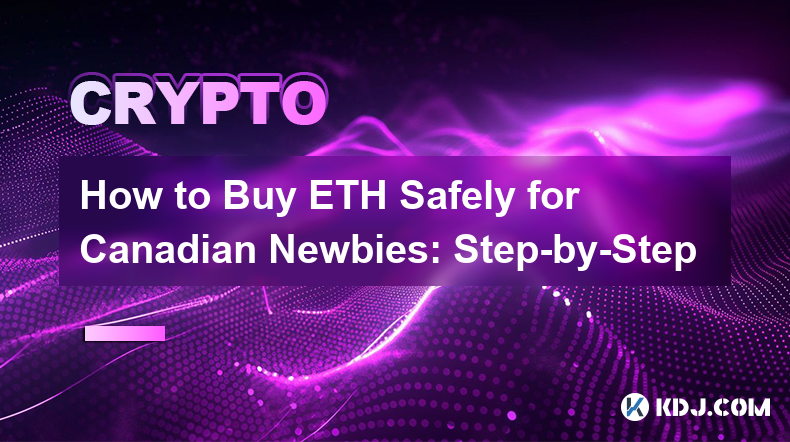
How to Buy ETH Safely for Canadian Newbies: Step-by-Step
Apr 01,2025 at 06:00pm
Amid the tide of cryptocurrencies, Ethereum (ETH) has attracted many investors with its unique charm. For Canadian newbies, buying ETH safely may seem complicated, but by mastering the right method, you can start your cryptocurrency investment journey smoothly. Next, I will introduce you in detail the step-by-step tutorial on safely purchasing ETH in Ca...
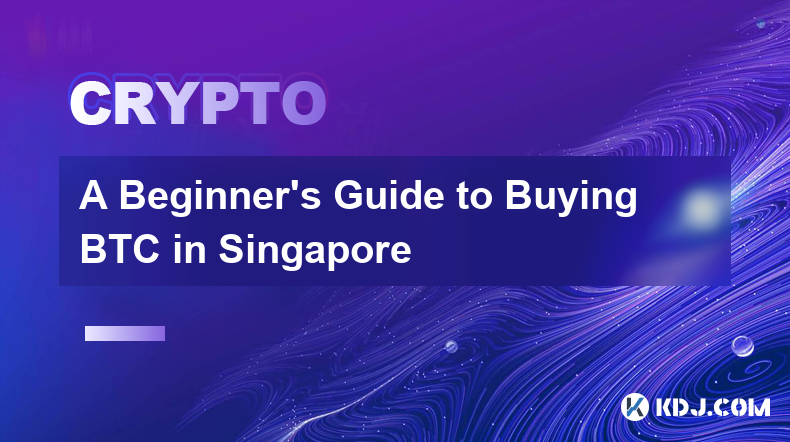
A Beginner’s Guide to Buying BTC in Singapore
Apr 01,2025 at 05:56pm
Cryptocurrency trading is quietly emerging in Singapore, and Bitcoin (BTC) attracts the attention of many investors with its unique charm. Are you also excited about this decentralized digital asset and want to enter this field? Don't worry, this article will present you a clear and easy guide to getting started with BTC in Singapore.Choose a reliab...
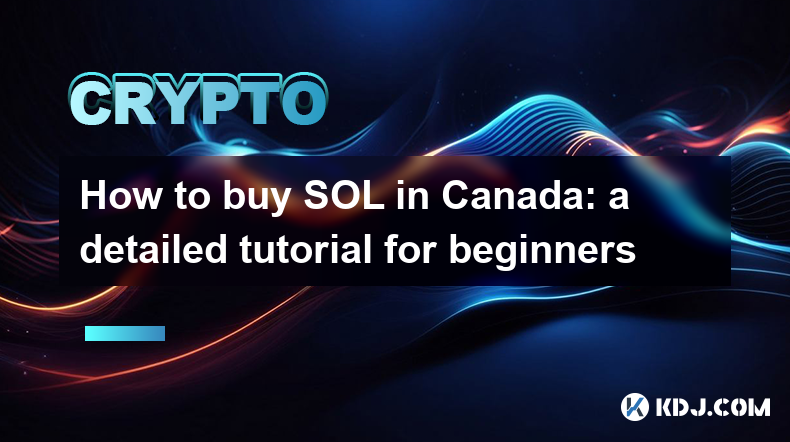
How to buy SOL in Canada: a detailed tutorial for beginners
Apr 01,2025 at 05:54pm
In the world of cryptocurrencies, Solana (SOL) has attracted the attention of many investors with its high performance and innovative technologies. If you are in Canada and want to participate in SOL's investment, but don't know where to start, then this detailed tutorial for beginners is tailor-made for you. Next, let’s start our journey of buy...
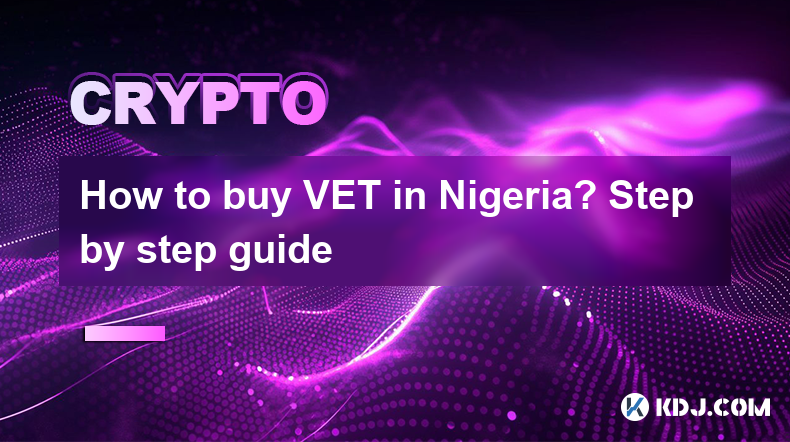
How to buy VET in Nigeria? Step by step guide
Apr 01,2025 at 05:40pm
In the world of digital currency, VET (VeChain) has attracted the attention of many investors with its innovative applications in areas such as supply chain management. For Nigerian investors, there may be some questions about how to buy VET safely and easily. Don’t worry, next we will teach you the operation process of purchasing VET in Nigeria step by...
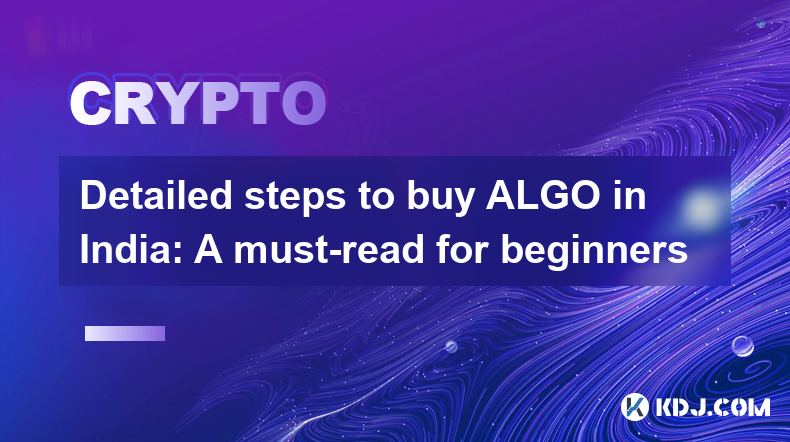
Detailed steps to buy ALGO in India: A must-read for beginners
Apr 01,2025 at 05:33pm
In the wave of digital currencies, ALGO has attracted the attention of many investors with its unique advantages. For new Indian investors, mastering the correct steps to buy ALGO is the key to starting this investment journey. Next, let’s learn more about the specific process of purchasing ALGO in India. 1. Choose a reliable cryptocurrency trading plat...
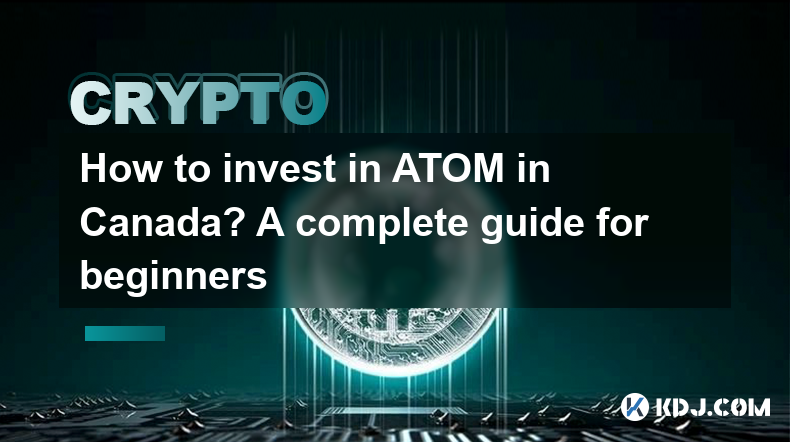
How to invest in ATOM in Canada? A complete guide for beginners
Apr 01,2025 at 05:25pm
In the vast universe of cryptocurrencies, Cosmos' ATOM coins are gradually emerging, attracting the attention of many investors. For Canadian investors, how to enter the ATOM investment field and embark on a journey of wealth appreciation is a hot topic at the moment. Don’t worry, this article will sort out your details to help you get started easil...

How to Buy ETH Safely for Canadian Newbies: Step-by-Step
Apr 01,2025 at 06:00pm
Amid the tide of cryptocurrencies, Ethereum (ETH) has attracted many investors with its unique charm. For Canadian newbies, buying ETH safely may seem complicated, but by mastering the right method, you can start your cryptocurrency investment journey smoothly. Next, I will introduce you in detail the step-by-step tutorial on safely purchasing ETH in Ca...

A Beginner’s Guide to Buying BTC in Singapore
Apr 01,2025 at 05:56pm
Cryptocurrency trading is quietly emerging in Singapore, and Bitcoin (BTC) attracts the attention of many investors with its unique charm. Are you also excited about this decentralized digital asset and want to enter this field? Don't worry, this article will present you a clear and easy guide to getting started with BTC in Singapore.Choose a reliab...

How to buy SOL in Canada: a detailed tutorial for beginners
Apr 01,2025 at 05:54pm
In the world of cryptocurrencies, Solana (SOL) has attracted the attention of many investors with its high performance and innovative technologies. If you are in Canada and want to participate in SOL's investment, but don't know where to start, then this detailed tutorial for beginners is tailor-made for you. Next, let’s start our journey of buy...

How to buy VET in Nigeria? Step by step guide
Apr 01,2025 at 05:40pm
In the world of digital currency, VET (VeChain) has attracted the attention of many investors with its innovative applications in areas such as supply chain management. For Nigerian investors, there may be some questions about how to buy VET safely and easily. Don’t worry, next we will teach you the operation process of purchasing VET in Nigeria step by...

Detailed steps to buy ALGO in India: A must-read for beginners
Apr 01,2025 at 05:33pm
In the wave of digital currencies, ALGO has attracted the attention of many investors with its unique advantages. For new Indian investors, mastering the correct steps to buy ALGO is the key to starting this investment journey. Next, let’s learn more about the specific process of purchasing ALGO in India. 1. Choose a reliable cryptocurrency trading plat...

How to invest in ATOM in Canada? A complete guide for beginners
Apr 01,2025 at 05:25pm
In the vast universe of cryptocurrencies, Cosmos' ATOM coins are gradually emerging, attracting the attention of many investors. For Canadian investors, how to enter the ATOM investment field and embark on a journey of wealth appreciation is a hot topic at the moment. Don’t worry, this article will sort out your details to help you get started easil...
See all articles

























































































